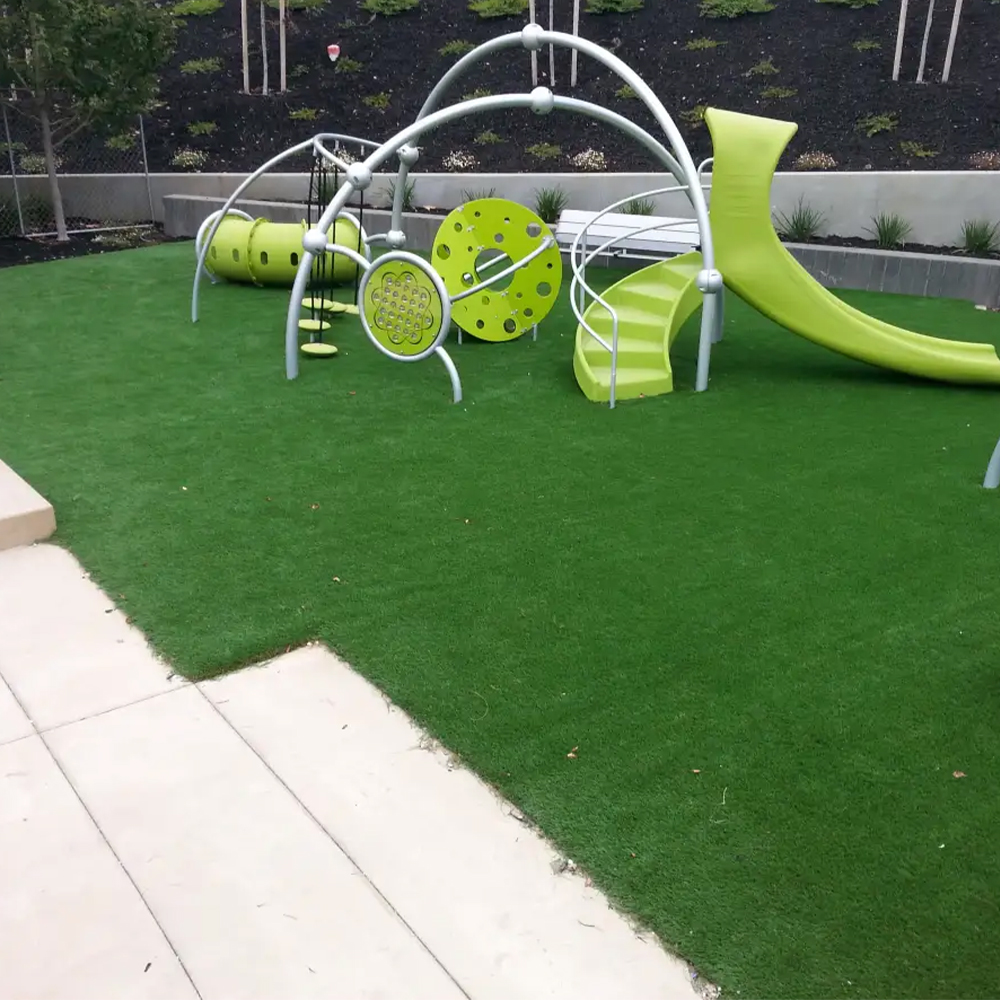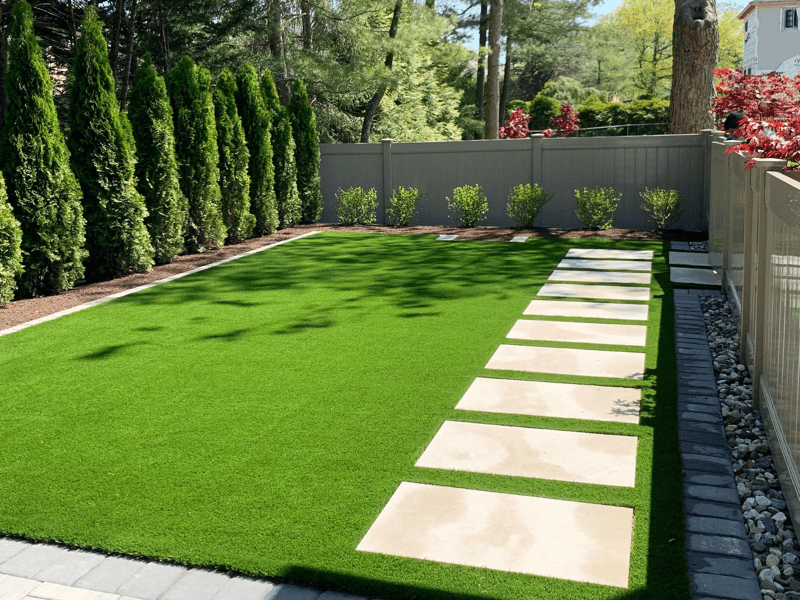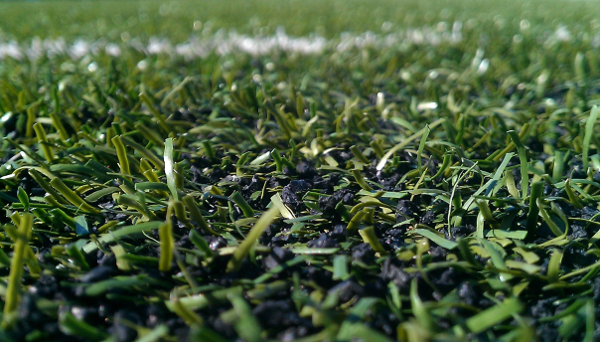Explore the Environmental Advantages of Opting for Synthetic Grass Solutions
The fostering of synthetic grass remedies offers a compelling chance to attend to pushing ecological challenges. By considerably minimizing water use and lessening the application of harmful chemicals, these alternatives not only promote sustainable landscaping but also protect local communities.
Water Conservation Advantages
One of the most considerable advantages of fabricated grass is its ability to preserve water. In comparison, synthetic turf does not need watering, substantially minimizing the general need for water sources.
By getting rid of the need for normal watering, synthetic lawn contributes to lasting landscape practices and assists minimize the environmental effect of excessive water usage. The conservation of water prolongs to the decrease of runoff, which can lead to soil disintegration and river pollution.
Additionally, the setup of synthetic grass enables property owners and communities to allocate water resources much more effectively, concentrating on essential uses such as drinking water and agriculture. The shift in the direction of fabricated lawn not only promotes responsible water usage but likewise lines up with wider ecological objectives targeted at maintaining natural deposits.
As areas increasingly focus on sustainability, the water conservation benefits of artificial turf present a compelling case for its adoption in commercial and household landscape design tasks.
Minimized Chemical Use
The shift to synthetic grass substantially reduces the reliance on chemical treatments commonly made use of in all-natural lawn upkeep. Standard turf management generally involves the application of herbicides, pesticides, and fertilizers to advertise growth and control pests. These chemicals can posture dangers to human health and wellness, local wild animals, and the atmosphere, adding to dirt and water contamination.
In comparison, synthetic turf removes the requirement for these hazardous materials. When installed, it calls for very little upkeep, largely including regular cleansing and irregular infill replenishment. This decrease in chemical usage not just benefits the prompt atmosphere but additionally adds to more comprehensive environmental stability. By decreasing the release of artificial substances into the ecological community, synthetic grass advertises much healthier dirt and water systems.
In addition, the absence of chemical overflow linked with synthetic lawn installations assists shield local waterways from air pollution, sustaining aquatic life and preserving biodiversity. Arizona turf. As communities progressively focus on lasting practices, selecting synthetic grass presents a practical service that lines up with ecological preservation objectives. Through this shift, homeowner can delight in rich eco-friendly rooms without endangering eco-friendly wellness, leading the way for a more sustainable future
Lower Carbon Footprint

Moreover, the installment of synthetic grass can result in considerable water preservation. All-natural grass call for substantial amounts of water for watering, which not just contributes to the carbon impact connected with water removal and treatment however likewise strains regional water sources. In comparison, fabricated turf needs minimal maintenance, requiring no watering, thus substantially lowering water use and its linked power expenses.
Furthermore, the durability of man-made lawn adds to its lower carbon influence. With a life expectancy of approximately 15 years or even more, the requirement for regular replacements is decreased, resulting in less waste and lower energy intake in production and taking care of traditional turf options. In general, synthetic lawn presents a sustainable option for eco conscious landscape design.
Environment Preservation
Habitat preservation is an essential factor to consider in the debate over landscape design options, specifically when contrasting synthetic grass to all-natural lawn. All-natural yard yards usually need substantial maintenance, including making use of pesticides, fertilizers, and herbicides, which can adversely influence regional ecological communities. These chemicals can seep right into the have a peek at this site dirt and waterways, damaging native vegetation and fauna and interfering with local environments.
In contrast, synthetic grass offers an opportunity to minimize the ecological footprint of landscape design. By selecting synthetic yard, property owners can minimize the disruption of natural environments associated with standard grass care methods. Synthetic grass gets rid of the demand for hazardous chemicals, consequently protecting close-by wildlife and keeping the honesty of surrounding communities. In addition, the installment of synthetic grass can cause the conversion of previous yard areas into more biodiverse landscapes, such as pollinator gardens or native plant areas, which can sustain neighborhood wild animals.
Eventually, the shift to synthetic grass not only conserves water and reduces maintenance initiatives however likewise fosters a more unified partnership in between human activities and the natural surroundings, advertising habitat preservation in the process.
Long-Term Sustainability
Lasting sustainability is a crucial consider examining the advantages of artificial lawn over standard turf lawns. Among the most significant advantages of synthetic grass is its durability; it can last approximately 15-20 years navigate to these guys with very little upkeep, whereas all-natural turf requires constant reseeding and replacement. This longevity minimizes the need for consistent sources, such as water, fertilizers, and chemicals, which are vital for maintaining a healthy and balanced grass yard.
Additionally, synthetic grass adds to a reduction in carbon exhausts connected with grass care tools. Conventional grass typically call for gas-powered lawn mowers, trimmers, and blowers, every one of which contribute to air contamination. Arizona artificial turf. On the other hand, fabricated turf eliminates the demand for such equipment, promoting a cleaner setting
Moreover, the manufacturing of synthetic grass significantly utilizes recycled materials, boosting its sustainability account. As producers embrace environmentally friendly methods, the ecological footprint of synthetic lawn remains to diminish.

Conclusion
The fostering of synthetic lawn options presents substantial environmental benefits, including significant water conservation, reduced dependence on hazardous chemicals, and a reduced carbon footprint. Fabricated grass help in maintaining natural habitats by minimizing land disturbance and promoting lasting sustainability via the usage of long lasting materials. Collectively, these variables emphasize the capacity of synthetic grass to add favorably to environmental health and wellness and supply a practical choice to traditional landscaping methods in a significantly resource-conscious world.
In contrast, man-made lawn does not require watering, considerably minimizing the total demand for water resources. By reducing the launch of artificial substances right into the ecosystem, artificial grass promotes healthier dirt and water systems.
Moreover, the installment of fabricated turf can result in substantial water conservation. In contrast, synthetic grass requires very little upkeep, calling for no watering, therefore dramatically reducing water use and its linked power prices.
